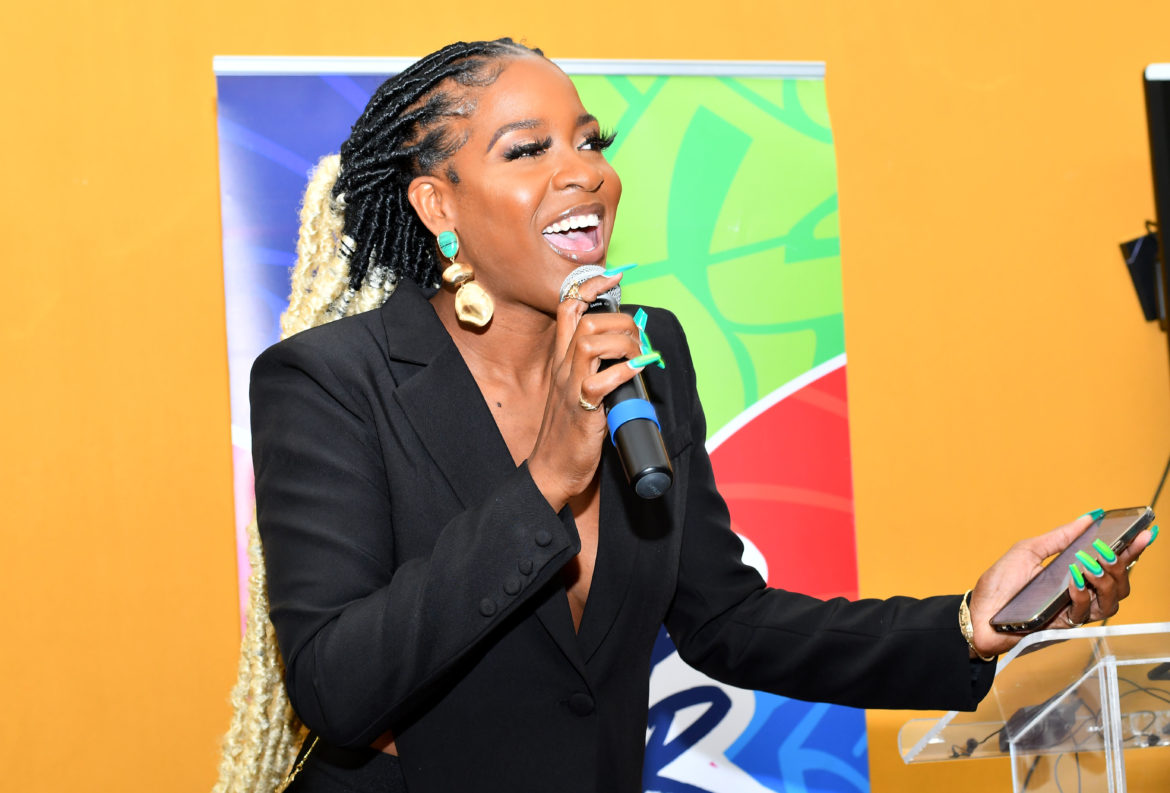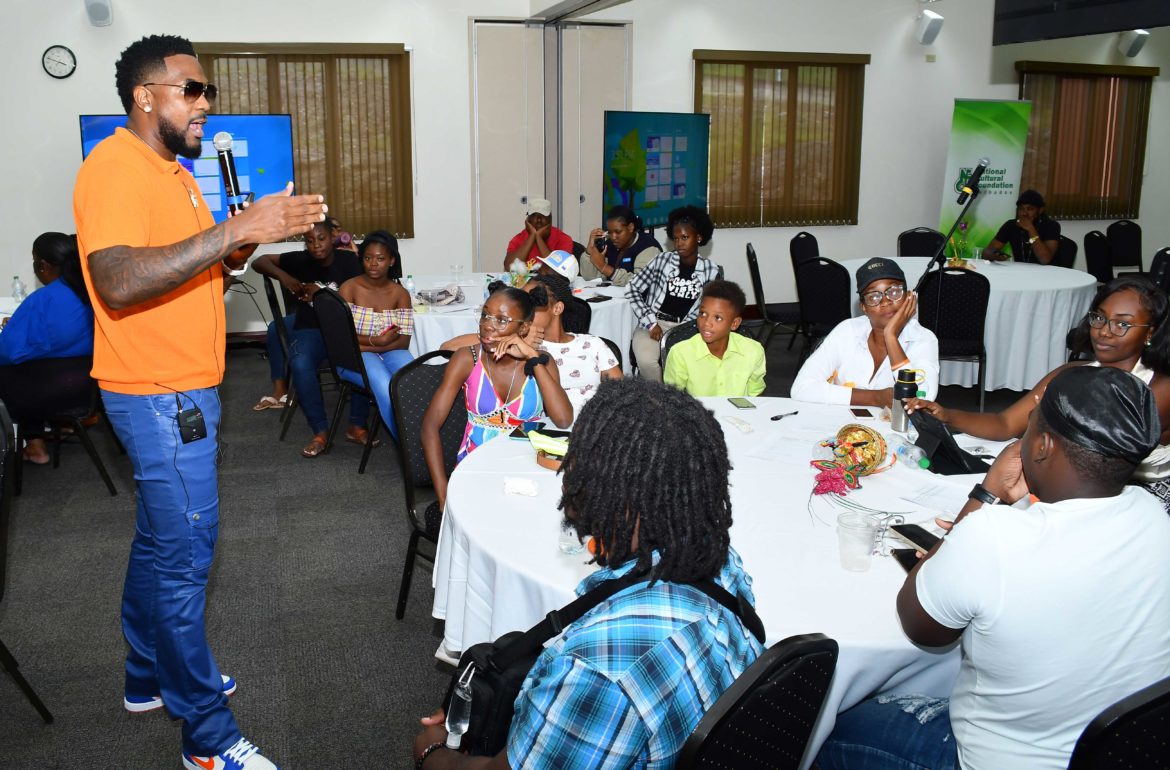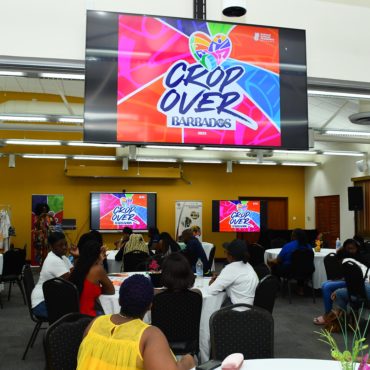
The National Cultural Foundation
West Terrace,
St. James, Barbados
246-417-6610

Music is a big and constantly growing business that can provide artistes with a steady stream of income if they make the right decisions, know their audience and especially understand their brand.
This was the message delivered by some of the island’s biggest entertainers at the National Cultural Foundation’s (NCF) hosted Artiste Development Workshop held recently at the The Sagicor School of Business, Cave Hill Campus.
Cultural Ambassador and 10-time calypso monarch The Most Honourable Stedson “Red Plastic Bag” Wiltshire and soca artiste, Faith Callender were among those that emphasised the importance of artistes staying true to their brand and being consistent with the messaging.
Wiltshire, who has been in the business for over four decades, contended that this level of consistency also builds trust with your audience, which leads to their loyalty to your brand.

But RPB also spoke about the importance of listening to your market as well as expanding and transitioning one’s brand to adjust with the shifts in the ever-evolving music industry.
He highlighted two major transitions that took place in his 43-year long career and were instrumental to his longevity and him remaining relevant.
The first began in 1993 following three substantial fails at the annual Pic-O-De-Crop competition. It was then he realised that if he wanted a full-time career in music and make money after the Crop Over season, there was a need to shift focus from the traditional social commentary.
The other took place in 2018 when he leveled up his writing to offer the public more philosophical songs. During the former period he opted out of competition and released the ragga soca hits Ragga Ragga and Something In The Music; later the reflective number I’m Alive (Hallelujah song).
“It [the first transitionary period] took me 19 years to transition. It was almost seamless. . . but you know why I had to take that time? Because I didn’t want to shock my market and make major shift. . . . I had to do it because I decided in 1995 that I was going to do music fulltime,” he explained.
“You need to understand your brand, feed your brand, work on your brand and keep pushing it,” Wiltshire added.
Callender, an entrepreneur, also underscored the importance of building your brand and understanding your market. This view helped to evolve her brand beyond her being known simply for gracing a calendar to standing firmly on the four pillars of fun, fitness, finance and fruition.

Callender who currently has more than 251,000 followers on the social media platform Instagram, believed that equally important also was leveraging social media as it builds awareness of your brand, cultivates your audience and expands your reach.
On the other hand, singer/songwriter and producer, Damien Hypasounds Etienne credited his success on his ability not only to invest financially in himself but in the equipment used to create his music. According to him, quality music and how you package the music will represent you even before you have entered a room.
For instance, he revealed that in his early years he produced some of his biggest hits such as Dip, How She Like It and Get Up and Move not in any impressive recording studio but from his grandmother’s bedroom. Yet, these songs, due to their high production value, went on to receive international recognition and be the driving force of his career.
“[I]t all started with me investing [in myself]. I was in a bedroom but I got to make sure I have a proper mic, I am going to make sure I have a proper sound card that my music comes out correct, but I am not going to tell you don’t go in a studio and get proper music.
“What I would say to you is you could have a nice decent set up because what mine was for was not to produce, it was for me to perfect my craft. That if someone send me a rhythm, I could make a thousand mistakes on this before I go to the studio. When I go into the studio my mind is clear, [I am ready] . . . to execute this performance,” Etienne stressed.

The workshop, which was coordinated externally by artiste manager Sonia Mullin, is one of a collection of initiatives which the NCF committed to hosting back in March at the launch of the Crop Over Festival.
At that time, the Foundation revealed that due to the cancellation of this year’s Soca Monarch competition, the production money of that show would be redirected with a heavy focus on artistes’ development. (PR)
Written by: Info NCF

labelCrop Over todayJuly 20, 2023
The National Cultural Foundation’s (NCF) is stepping up its support for people involved in the cultural industry at all levels. The Foundation did so recently when it held its Artistes [...]

labelNews todayFebruary 5, 2026

labelNews todayJanuary 28, 2026
The National Cultural Foundation
West Terrace,
St. James, Barbados
246-417-6610
Copyright 2024 National Cultural Foundation